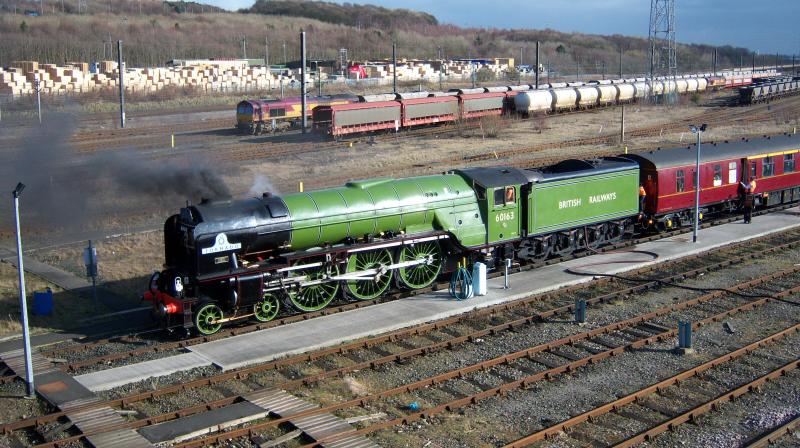Steam train hits 100 mph in UK in 50-year first

A steam train clocked 100 mph (161 kmph) on Britain's mainline railway network for the first time in almost 50 years.
Tornado, a Peppercorn-class A1 steam locomotive, reached the landmark speed during a test run yesterday, aimed at proving it can operate passenger services at 90mph (145 kph). A steam locomotive has not hit 100 mph in Britain since 1968, according to The Daily Telegraph newspaper.
Built by heritage enthusiasts, Tornado hit the three-figure speed on the East Coast Main Line – the route between London and Edinburgh – during a run between Doncaster and Newcastle in northern England. The test run was part of a bid to raise Tornado's speed limit for passenger services from 75 mph (121 kmph) to 90mph by the end of this year.
Preservation steam locomotives have been restricted to 75 mph since the end of steam services on the main lines in the1960s. Tornado was the first steam locomotive to be built in Britain for almost half a century when it was completed in 2008. If Tornado can run at 90mph it will be able to fit in better with other trains on the busy main railway lines.
Pulling passenger carriages yesterday on a secret run, it ran at 10 per cent above the 90 mph mark to demonstrate a sufficient safety margin. "We are delighted to have completed the test runs that move us one step closer to 90 mph operations with Tornado," said Graeme Bunker-James, operations director for the A1 Steam Locomotive Trust.
"This will allow us to ensure that the locomotive continues to haul trains on the busiest parts of the UK network, allowing as many people as possible to enjoy travelling with Tornado. As part of these tests, the locomotive operated at 90 mph for a sustained period and also achieved 100 mph under these special conditions and running with clear signals."
Workers on the locomotive, their faces blackened, celebrated with a cup of tea after hitting the landmark. The world speed record for a steam locomotive is 126 mph (203 kmph), set by the Mallard further south on the same railway line in 1938.

